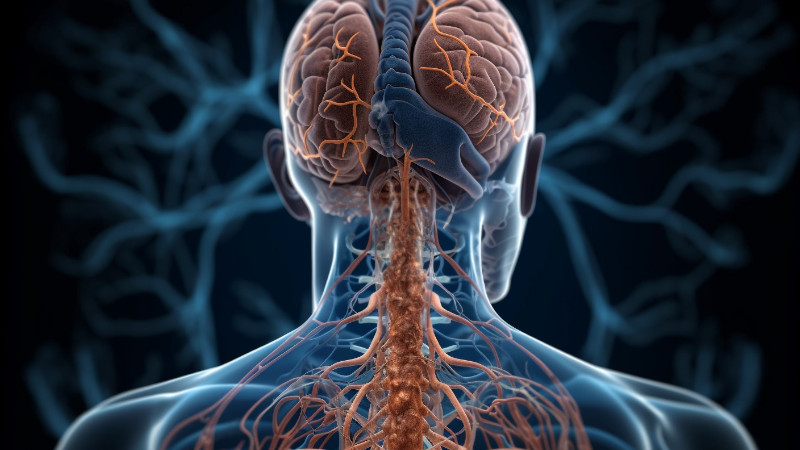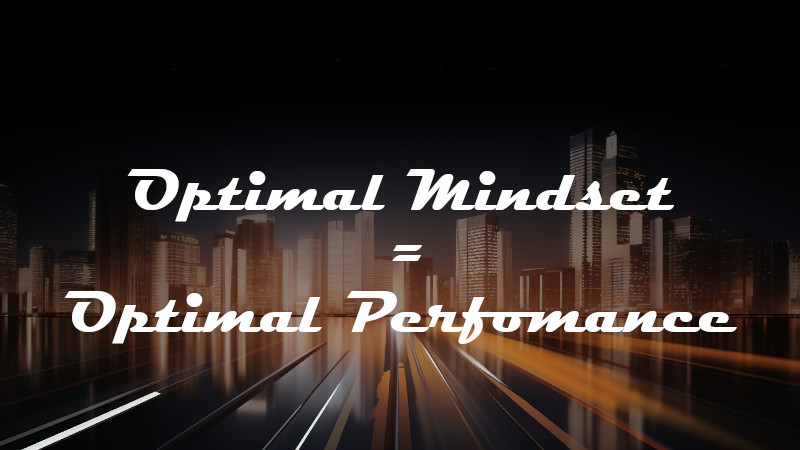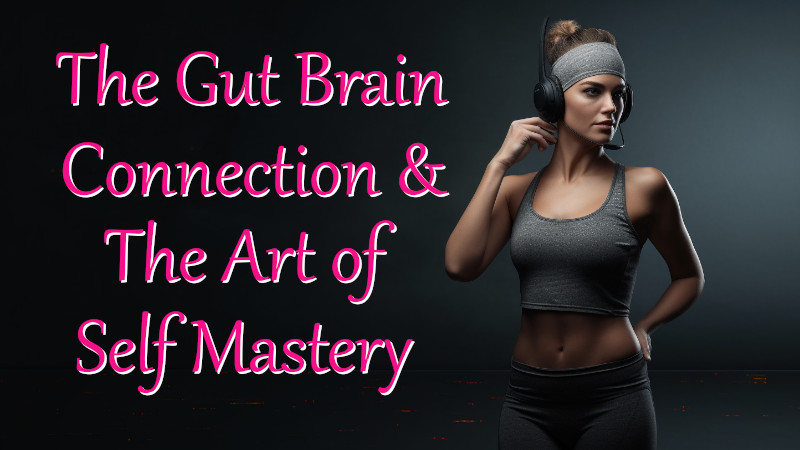You’ve probably heard the phrase, “You are what you eat.” While there’s truth to this saying, the link between our nutrition and overall health extends beyond simple cause-and-effect. One fascinating area of research that has gained momentum over the years is the connection between mindset and gut health.
This phenomenon, often referred to as the gut-brain axis, could hold the key to achieving a balanced, healthy lifestyle.
Table of Contents
The Gut-Brain Axis: A Two-Way Street
Your gut, also known as your second brain, is more than just a digestion powerhouse. It’s a complex system of microbes, enzymes, and hormones, all working in harmony with your body. It communicates directly with your brain, affecting mood, stress levels, and even thought patterns.

Similarly, your mindset – your thoughts, feelings, and attitudes – can have a significant impact on your gut health.
Stress, anxiety, and negative emotions can upset the balance of your gut flora and trigger digestive issues. Conversely, a positive mindset can contribute to a healthier gut. This symbiotic relationship reveals the deep connection between our minds and our bodies.
For more mindset and gut health-related articles, see also:
- Knowing Your Gut: 7 Critical Aspects Of Gut Health Impacts On Pain
- 9 Mind-Blowing Gut Brain Connection Facts You Need To Know
Harnessing the Power of Positivity for Gut Health
Research suggests that adopting a positive mindset can lead to better gut health. Cultivating optimism, resilience, and a sense of calm can help manage stress levels, which in turn can improve gut function. Engaging in mindfulness practices, such as meditation or yoga, can also contribute to maintaining a healthy gut.
On the other hand, fostering gut health can enhance mental well-being. Consuming a balanced diet rich in fiber, fermented foods, and plenty of water can support a healthy gut microbiome. Regular exercise and adequate sleep are also essential for maintaining gut health, which can, in turn, support a positive mindset. 1
The Art of Self Mastery: Bridging the Gap
Led by Stephanie Caldow, the founder of Think Collective, the Art of Self Mastery Masterclass is designed to empower you to optimise your performance, break down barriers, and align your life with your true desires. While it might seem surprising, this mental and emotional transformation can also contribute to a healthier gut.
Stephanie uses scientifically backed methodologies that touch on key aspects of lifestyle and mental health, including stress management, self-awareness, and resilience-building, all of which are integral to both mindset and gut health.
By taking a holistic approach to personal growth and performance, the Art of Self Mastery Masterclass helps individuals embrace a more balanced, fulfilling lifestyle.
Don’t underestimate the power of your mind in your journey towards better health. By embracing the connection between mindset and gut health, you’ll unlock a powerful tool for achieving an extraordinary life.
Are you ready to tap into the power of your gut-brain axis?
Are you prepared to embrace the connection between your mindset and gut health to lead a more fulfilling, balanced life? Then the Art of Self Mastery Masterclass is for you.

Check out the Masterclass offering from Stephanie to learn more and discover how it can support your journey to better mental and physical health.
Embrace the power of your gut-brain axis and begin your journey to extraordinary living today. Because you’re not just what you eat—you’re also what you think.
FAQs
What is the connection between mind and gut health?
The connection between mind and gut health, often referred to as the gut-brain axis, is a complex bidirectional communication system that links our emotional and cognitive centres of the brain with peripheral intestinal functions. This communication happens via neural, endocrine, immune, and humoral links.
From a mental health perspective, stress, anxiety, and other negative emotions can disrupt the balance of bacteria in the gut (the gut microbiome), leading to digestive issues and inflammation. These disruptions can further exacerbate feelings of stress or anxiety, creating a cycle that’s hard to break.
Conversely, the gut can also influence the mind. The gut microbiome produces a variety of neuroactive substances, including neurotransmitters like serotonin and dopamine, which play a crucial role in mood regulation. Disruptions in the gut microbiome can therefore influence mood and overall mental wellbeing.
By acknowledging this intricate connection, it’s possible to use strategies like stress management, a balanced diet, regular exercise, and sufficient sleep to foster a healthier mindset and gut health. It’s a perfect illustration of the holistic nature of our well-being – mind, body, and gut are interconnected, each influencing the other in various ways.
Does gut health actually affect mental health?
Yes, when it comes to mindset and gut health, gut health significantly affects mental health. It’s a two-way street. The complex ecosystem of bacteria living in our digestive system, known as the gut microbiota, plays a vital role in our mental and emotional health.
The gut and the brain communicate with each other along a two-way street known as the gut-brain axis. One primary method of this communication is through neurotransmitters, chemicals responsible for carrying messages throughout the body. For example, about 90% of serotonin, a neurotransmitter often termed the ‘feel-good’ hormone for its role in promoting feelings of happiness and well-being, is produced in the gut.
An imbalance or disruption in the gut microbiota, often termed dysbiosis, can negatively impact this production and thereby affect our mood and mental state. Research has linked dysbiosis with various mental health issues including anxiety, depression, and stress-related disorders.
Did you know that your gut health is susceptible to various factors such as diet, sleep, exercise, and stress? Therefore, focusing on maintaining a healthy lifestyle that promotes gut health can have a positive impact on mental well-being. It’s a profound demonstration of the interconnectedness of our physiological and psychological health.
However, while maintaining gut health can support mental well-being, it’s crucial to remember that it is one aspect of a multifaceted approach to mental health care. It’s always recommended to consult with a healthcare provider for comprehensive mental health support.
How do you fix gut health for mental health?
Improving mindset and gut health for broader wellness involves several lifestyle modifications and choices. Here are some key strategies:
• Adopt a balanced diet: The foods we eat have a significant effect on our gut microbiota. A diet rich in diverse fruits, vegetables, whole grains, and fermented foods can promote a healthy gut. These foods are high in dietary fibre and contain probiotics that help stimulate the growth of beneficial bacteria. 2
• Avoid processed foods: Highly processed foods, sugars, and certain fats can disrupt the balance of gut bacteria, leading to dysbiosis. Reducing intake of these can contribute to better gut health.
• Stay Hydrated: Drinking plenty of water contributes to the overall health of the gut.
• Exercise regularly: Physical activity can enhance the diversity of gut microbiota, promoting both gut and mental health.
• Reduce Stress: High levels of stress can damage the gut microbiota. Mindfulness techniques, yoga, meditation, and proper sleep can all help manage stress levels.
• Avoid unnecessary antibiotics: While necessary for treating certain infections, antibiotics can disrupt the gut microbiota. They should be used judiciously and only when prescribed by a healthcare professional.
• Consider probiotics and prebiotics: These supplements provide beneficial bacteria (probiotics) and nutrients to support them (prebiotics). However, you should consult a healthcare professional before starting any supplement regimen.
Remember, improving gut health is a gradual process that involves consistent lifestyle changes. While it can positively impact mental health, it should not replace traditional mental health treatments but rather complement them. Always consult a healthcare provider for personalised advice regarding mental health concerns.
How do you reset your brain gut?
Resetting the brain-gut connection is about taking steps to balance gut health, which in turn can influence mental well-being. In addition to the suggestions above, here are some further strategies to consider:
• Practice Mindful Eating: Eating slowly and being conscious of each bite can help with better digestion and nutrient absorption.
• Ensure Adequate Sleep: Poor or inadequate sleep can negatively affect your gut health. Ensure you maintain a regular sleep schedule and create a relaxing bedtime routine.
• Limit Alcohol and Caffeine: These substances can disrupt the balance of your gut bacteria and can potentially affect your mental health. Moderation is key.
• Quit Smoking: Smoking can cause harm to the gut lining and disrupt the balance of gut bacteria, so quitting smoking can significantly improve gut health.
• Maintain a Healthy Weight: Being overweight can alter the composition of gut bacteria and negatively impact the gut-brain axis. Regular exercise and a balanced diet can help maintain a healthy weight.
• Regular Health Check-ups: Regular check-ups with your healthcare provider can help monitor your gut health and catch any potential issues early.
• Laughter: Believe it or not, laughter is good for your gut! The act of laughing helps reduce stress, which can have a positive effect on your gut health.
Remember, it’s always a good idea to consult with a healthcare provider before starting any new health regimen. Resetting the brain-gut connection can be a gradual process and it’s important to be patient with yourself as you make these lifestyle changes.
Conclusion
Maintaining an optimal state of gut health and mental well-being is not just about feeling good in the present moment. It’s about setting a solid foundation for long-term health, productivity, and happiness. The mind-gut connection serves as a reminder of how interconnected our bodies and minds truly are.
Ignoring one aspect of our well-being can inadvertently impact other areas, creating a ripple effect of potential health concerns.
Fostering a healthier gut-brain axis is an investment in your holistic health that can result in significant improvements across various areas of life. It can enhance your mental clarity, boost your mood, increase your resilience to stress, and even impact your professional and personal relationships positively.
Incorporating the steps discussed into your daily routine might seem overwhelming at first, but even small changes can bring about substantial improvements over time.
Remember that it’s not about achieving perfection right out of the gate, but making continuous efforts toward progress that you feel is positive.
This holistic approach to health and wellness aligns perfectly with the goals of Stephanie Caldow’s Art of Self Mastery Workshop (link above). Her program takes into account the whole individual and helps leaders and entrepreneurs find ways to break free from what’s holding them back and live aligned with their true desires.
Click here to learn more about how this workshop can help you harmonise your mind and body for optimal wellbeing and success. Remember, the journey to better health and a better life starts with a single step. Make today the day you take that step.
Share your thoughts on mindset and gut health connections with us in the conversation on Instagram and Pinterest.
References
- “The gut-brain axis: interactions between enteric microbiota, central and enteric nervous systems” – M. Carabotti, A. Scirocco, M. A. Maselli, C. Severia, April 2015 [PubMed] [Archive] ↩︎
- “The anxiolytic effect of probiotics: A systematic review and meta-analysis of the clinical and preclinical literature” – D. J. Reis, S. S. Ilardi, S. E. W. Punt, 20 June 2018 [PubMed] [Archive] ↩︎
Last Updated on 6 months by D&C Editorial Team


